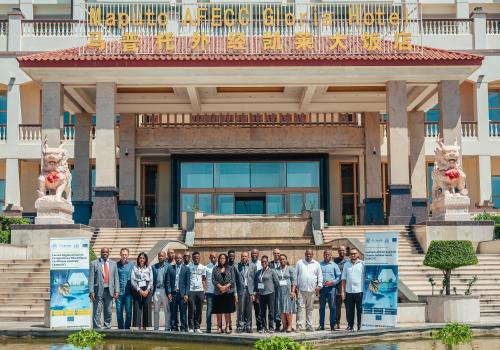Leveraging SADC Climate Service Centre’s Designation as WMO Regional Climate Centre
The Southern Africa Development Community (SADC) region has long grappled with the adverse impacts of climate change, witnessing an increase in extreme weather events over the past two decades.
In response to these challenges, the SADC Secretariat has taken proactive measures to bolster disaster risk management, climate change adaptation, mitigation, and resilience efforts.
Central to these efforts is the establishment of the SADC Climate Services Centre (CSC), aimed at providing operational and regional services for monitoring and predicting climate extremes.
The CSC plays a crucial role in developing and disseminating meteorological, environmental, and hydro-meteorological products, thereby enhancing disaster risk management within the region and ensuring member states are well-prepared for weather and climate-related disasters.
To further strengthen its services and support climate change adaptation and mitigation, the SADC CSC is implementing the SADC Intra-African Caribbean Pacific (ACP) Climate Services and Related Applications Programme (SADC ClimSA).
This initiative aims to provide science-based climate prediction and information services to aid national and regional planning processes, particularly in the Water-Energy-Food Security (WEF) nexus.
A significant milestone in this journey is the pursuit of designation as a World Meteorological Organisation (WMO) Regional Climate Centre (RCC). WMO RCCs serve as centres of excellence in providing climate services for National Meteorological and Hydrological Services (NMHSs) by generating regionally-focused data, products, and training.
The designation of the SADC CSC as a WMO RCC presents opportunities for enhanced climate services and capacity building at regional and national levels.
Despite the existing climate services gap in many SADC member states, the WMO’s technical expertise and cooperation mechanisms offer avenues for improving institutional capacity.
The designation of the SADC CSC as a WMO RCC will enable it to deliver more regionally-focused climate services, empowering member states to respond effectively to climate-induced disasters and safeguard their populations and economies.
As the SADC CSC progresses towards WMO designation, leveraging this status will further enhance the region’s response to climate-induced weather events, foster regional integration, and accelerate the achievement of the Regional Indicative Strategic Development Plan (RISDP) 2020-2030.
By strengthening climate services capacity, the SADC region can better address the multifaceted challenges posed by climate change and advance sustainable development goals.
Additional source: SADC Secretariat



